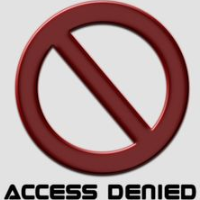Legislation Would Give Owners Some Control of Their Car Data

California drivers are regularly tracked by onboard computers, license plate scanners and traffic cameras (drones are tk) but have no access to the data.
Legislation authored by state Senator Bill Monning (D-Carmel) to give car owners some control over the black box built into most vehicles today—recording speed, location, number of passengers and other data—put a spotlight on those already vying for information whose myriad uses have yet to be mined.
Black boxes record critical data that is used to operate, repair and maintain a vehicle. The information can also be used to track and analyze the behavior of drivers and passengers in real time.
Senate Bill 994, introduced Tuesday, would require a manufacturer to give a vehicle owner access to the vehicle's data and the ability to transmit the information to a third party. The legislation points out that approximately 20% of cars sold this year will have the ability to convey this information wirelessly to other sources. By 2025, it is expected that all California vehicles will have the capability, perhaps facilitating car-to-car communication on the way to driverless vehicles.
The bill would also pretty much prohibit anyone but the owner from mucking around with the data without permission.
That, understandably, did not sit well with the auto manufacturing industry. Rob Stutzman, an industry spokesman, told the Los Angeles Times that manufacturers were the protector of owner privacy and SB 994 would tear down the shield. He identified who the bad guys were.
“This is about AAA wanting to suck the data out of your car,” Stutzman said. He argued that the bill would directly benefit two sponsors of the bill, the Auto Club of Southern California and AAA Northern California, by giving them access the information.
Both are insurance companies that could conceivably set rates based on computer data. Like grocery shopping at Von's, a consumer can choose not to divulge their personal information, they just won't get that generous discount.
Picking between insurance companies and auto manufacturers could be considered a Hobson's choice. What distinguishes Monning's legislation is that it introduces to the deal the individual whose information is being bartered.
That is not the case in banking, telecommunications, the credit industry, medicine, education, government, law enforcement, the military, social media and everywhere else. It is a given that most personal data is up for grabs, to be stored, swapped, monetized and otherwise exploited by anyone but the person involved.
Monning told a press conference it is more than just a privacy issue. There are practical consequences to controlling one's car data. “If I have a car problem, a red light on the dash board, I want to be able to take that to a repair service that with my authority they could access that data to make a repair," he said.
Monning is wading into untested waters. His bill points out, “It is unclear who has the right to control the dissemination of consumer vehicle information, as there are no uniform standards or policies that address this issue.”
It may be unclear who has the authority, but it's clear who does not, so far: vehicle owners.
–Ken Broder
To Learn More:
Control of Car Data at Stake in Bill Monning Bill (by Jeremy B. White, Sacramento Bee)
Auto Clubs Back Bill to Give Car Owners Control of Their Onboard Data (by Marc Lifsher, Los Angeles Times)
Yes, Your New Car Has a “Black Box” Where’s the Off Switch? (by Martin Kaste, NPR)
- Top Stories
- Controversies
- Where is the Money Going?
- California and the Nation
- Appointments and Resignations
- Unusual News
- Latest News
- California Forbids U.S. Immigration Agents from Pretending to be Police
- California Lawmakers Urged to Strip “Self-Dealing” Tax Board of Its Duties
- Big Oil’s Grip on California
- Santa Cruz Police See Homeland Security Betrayal in Use of Gang Roundup as Cover for Immigration Raid
- Oil Companies Face Deadline to Stop Polluting California Groundwater





